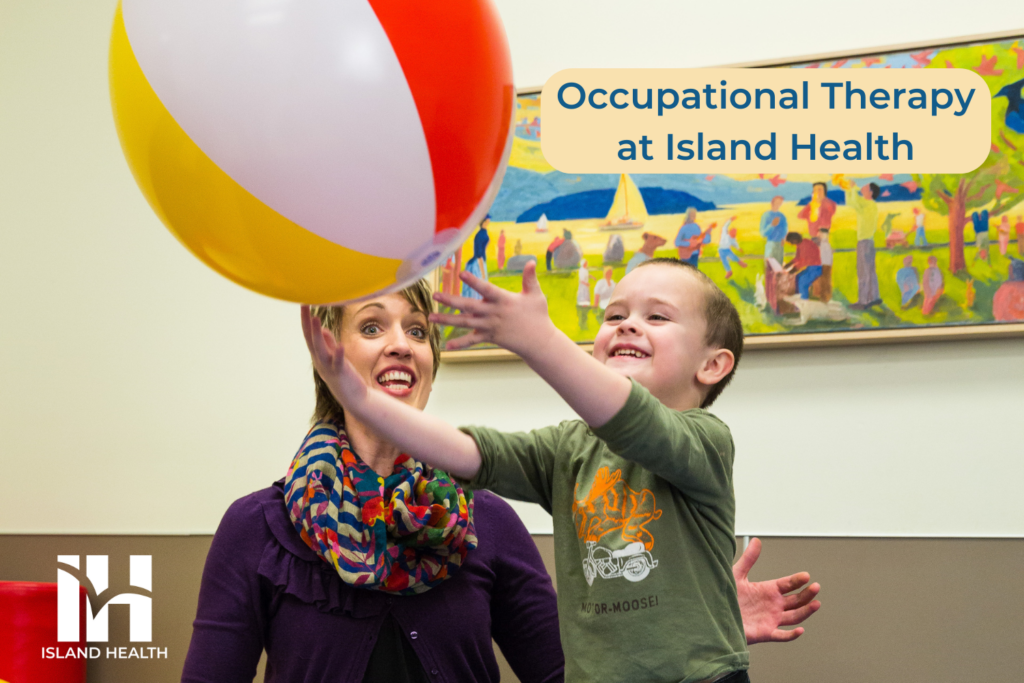Work, play and live life to its fullest with help from occupational therapy

Occupation is what makes life meaningful. It is what fills your time and brings a sense of accomplishment to your day. Occupations change and shift as we age. A child’s main occupation is play, while an adult is likely focused on work and family. Meanwhile, an older adult may be enjoying retirement by reconnecting with a new sense of play. When we are able to perform our occupations, we think little about the impact of not being able to achieve them. In the event of a sudden injury or childhood delay, occupations become so much more important. That’s where occupational therapy (OT) comes in.
At Island Health, we have both inpatient and outpatient licensed occupational therapists to assist with many deficits to work and play. We work with children and adults to facilitate valued occupations so our patients can live life to the fullest. With children, this often is focused around play and learning. With adults, it may be focused on strength and movement, assistive devices or cognition. Regardless, the goal is to get our patients safely and independently performing those occupations that are most important to them.
What might an OT help with?
- Play
- Pediatric social interactions
- Learning for children and adults
- Activities of daily living (self-care like bathing, dressing and grooming/hygiene)
- Memory
- Mobility (specifically as it is needed to perform occupations)
- Hand and/or arm/shoulder movements
- Vision
- Safety at home
- Strategies for aging in place
When to seek help
It’s essential to recognize the signs that may indicate the need for OT intervention, both for children and adults.
For children:
- If you notice your child is having trouble with play, communication, peer interactions, age appropriate self-care or school work, an OT evaluation may be warranted.
For adults:
- Injury or restricted movement to the hand/arm/shoulder
- Increased difficulty with daily activities associated with aging, injury or general weakness
- Memory or other cognitive decline
- Visual changes from a stroke or traumatic brain injury
An occupational therapy evaluation can determine if therapy is right for you. During an evaluation, several key steps are taken to asses an individual’s needs and develop a personalized treatment plan, if needed.
If you are experiencing challenges or limitations in performing everyday activities due to physical, cognitive, emotional or developmental factors, consulting with an occupational therapist may help improve your independence, quality of life and overall well-being.
A referral is needed to schedule an appointment with an occupational therapist. Please discuss your interest in seeing an occupational therapist with your primary care provider.
Published on April 10, 2024

